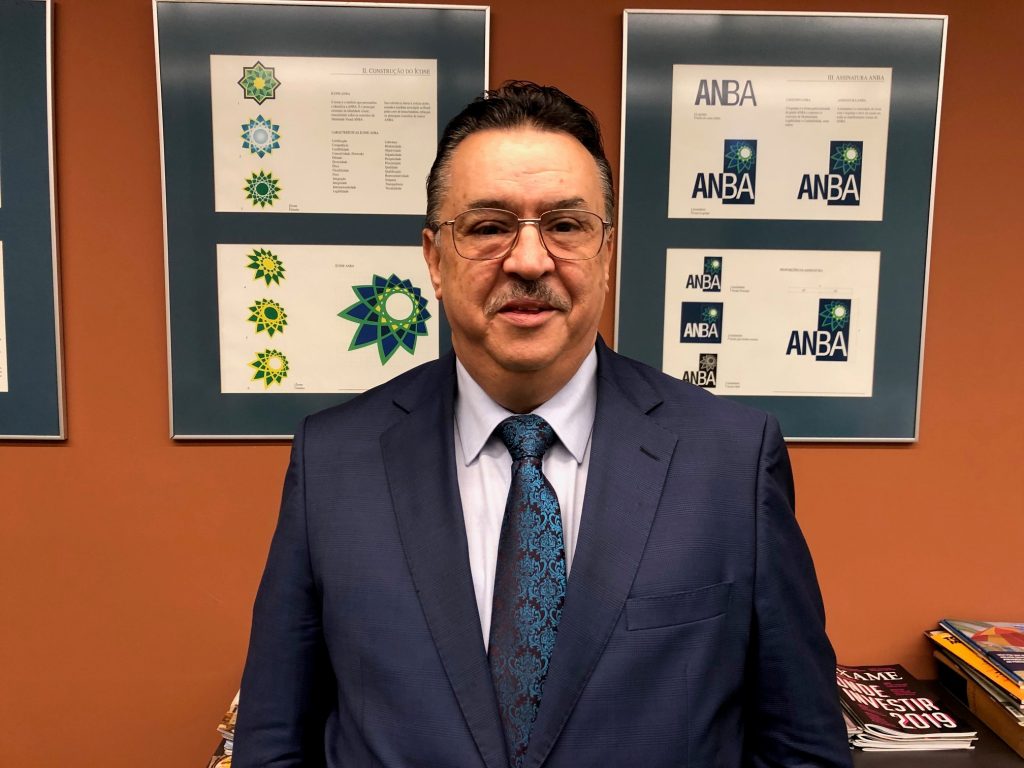São Paulo – Libyan Ambassador in Brazil Khaled Dahan said he expects trade between these two countries to grow around the middle of the first semester of next year. Visiting Arab Brazilian Chamber of Commerce this Thursday (20), Dahan talked to ANBA about bilateral diplomatic and trading relations. The diplomat is leaving the office he held for almost five years, his first one as an ambassador. He had already acted as diplomat previously in other countries such as Russia. Now, he returns to Libya to work at that country’s Ministry of Foreign Affairs.
“My expectation is that as soon as Libya is more stabilized and resumes its economic development, with the new government elected [which should happen in April or May 2019], trading with Brazil and other countries will grow again,” said Dahan. “We wish the best for Brazil and its new government, and we are certain good people will guide the new government correctly so that those relations are maintained”, he stated.
According to the ambassador, the elections in Libya were planned for December, but there are still parts of the new constitution yet to be agreed by the parts, which should be discussed on the next few months, and the new government should be established by April or May. The country is stable, according to Dahan. “The presidential council is trying to bring all the groups to be part of the new government; it is a time of transition, but the population is already aware it needs a new government,” he said.
Dahan stated that resuming relations with Brazilian infrastructure companies was one of his most important acts. “Libya already had a number of contracts with Brazilian companies, specially in the infrastructure sector, to build roads, bridges, overpasses, recover airports; and also, cooperation contracts between Petrobras and the Lybian National Oil Corporation in order to grant oil perforation rights in some regions,” he said.
According to the ambassador, OAS, Odebrecht, Queiroz Galvão, Andrade Gutierrez and Petrobras had to stop their activities in Libya when the civil war begun in the country, in February 2011, for safety reasons. During his time at the embassy, Dahan met with some of these companies that, according to him, said they would like to talk with Libyan authorities to resume their work.

The ambassador said he talked to representatives of Brazilian areas of economy, commerce, health, defense, industry, among others, to sign contracts and open doors. “I believe my country will soon be restored and be in position to cooperate with Brazilian companies of all fields and sectors,” he emphasized.
According to him, trading relations with Brazil have grown over the last five years, but not much. “Libya had no official exchange, which impaired dealing with other countries, but now with the country’s economic reforms, the government is going to reestablish the official exchange, making it easier to do business, which means a sizeable growth in the trade balance in the short run,” said Dahan. The official currency in Libya is Libyan dinar.
Exports from Brazil to Libya fetched USD 195.35 million from January to November, up 38.5% from a year ago. Imports amounted to USD 20.7 million, down 48.2%. The Arab country buys mostly iron ore, beef, poultry and coffee from Brazil, and it sells mostly fuel.
Dahan believes another highlight of his stint was the support Brazil lent to Libya for a political agreement signed in 2015 in Skhirat, Morocco, with mediation from the United Nations (UN), to create a national unity government – a power struggle was underway in several locations across Libya. “Brazil stood on Libya’s side, it stood on the UN’s side, it stood on the side of justice,” he said.
Another action mentioned by the ambassador was the visit the Arab Chamber organized for Arab and African ambassadors at the Port of Suape, in Pernambuco, last year. “I suggested that the Brazil-Libya export route be changed, because currently, the goods get shipped via South Africa and up to the Gulf, and it takes three months for them to get there, but if you go straight through North Africa, it will take only seven days,” he argued. According to Dahan, Libya has the longest coastline on the Mediterranean Sea, at 2,000 km, between Egypt to Tunisia. “That would be an idea, because when departing from Libya, ships could make stops in Italy and other countries in Europe, and then journey back to Brazil bringing goods from those countries. That is a very important idea, one that could increase trade with North Africa and Europe,” he suggested.
Dahan began his tenure in April 2014 and said that although he likes Brazil, that was a challenging moment. The scenario was one of political and economic crisis in Brazil, and Libya was also in an internal crisis. He said he received a very warm welcome and felt embraced by both Brazil’s people and government, “especially the colleagues in the Foreign Ministry. I would like to thank them for how easy they made it for me to perform my diplomatic mission in this friendly country.” The ambassador stressed the historical ties between the countries, going back to the opening of the Embassy of Libya in Brasília, in 1974.
The first secretary to the Embassy and consular department head Emhemed Almotaa accompanied the ambassador in his visit to the Arab Chamber. They were welcomed by president Rubens Hannun, interim CEO Tamer Mansour and directors William Atui and Mohamed Mourad.
“I would like to thank the Arab Chamber for all the assistance we got from president Rubens Hannun and CEO Michel Alaby, whom I learned a lot from as we worked together, and to thank all directors for the assistance. Whenever I come here I feel as if I am in my country. I feel at home. Everyone is very welcoming and helpful. Thank you,” he concluded.
Translated by Guilherme Miranda & Gabriel Pomerancblum




